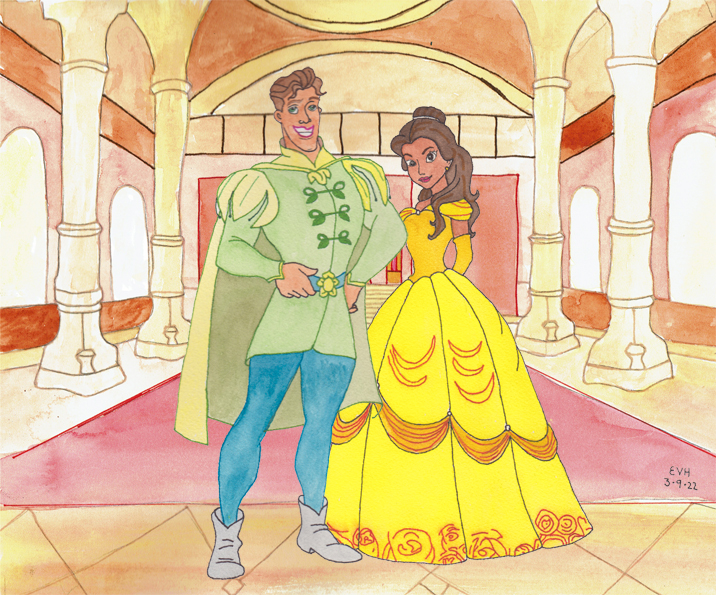
Jataka 305
Sīlavīmaṃsana Jātaka
The Test of Virtue
as told by Eric Van Horn
originally translated by H.T. Francis and R.A. Neil, Cambridge University
originally edited by Professor Edward Byles Cowell, Cambridge University
Over the years I have run into a number of stories that have the same theme as this one. That theme is that you can never commit a wrong without someone knowing it. That is because even if no one else finds out about it, you will. If you have ever done something that you regret—and everyone has—then you understand the meaning of this story. It is a cautionary tale to stay mindful of your actions, because misdeed will weigh on you even if no one else knows about them.
“In truth there is.” The Master told this story while he was at Jetavana, about the rebuking of sin. The circumstances will be set forth in the Pānīya Birth (Jātaka 459). The following is a brief summary of it.
500 monks were living at Jetavana. At the close of the middle watch of the night, they got into an argument about sense pleasures. Now the Master kepts a continual watch through all the six divisions of night and day over the monks, even as a one-eyed man carefully guards his eye, a father his only son, or a yak its tail. In the night time, with his supernatural vision regarding Jetavana, he watched these monks, as it were, like robbers that had found their way into some great king’s palace. And opening his perfumed chamber, he summoned Ānanda and told him to assemble the monks in the Home of the Golden Pavement and to prepare a seat for him at the door of the perfumed chamber. Ānanda did as he was commanded. Then the Master, sitting down on the seat prepared for him, addressed the monks and said, “Brothers, wise men of old thought there was no such thing as secrecy in wrong-doing and so refrained from it,” and he told them this story of the past.
Once upon a time when Brahmadatta was reigning in Benares, the Bodhisatta was reborn into a brahmin family. When he was of age, he was taught science by a world-renowned professor of that city who was at the head of a class of 500 students. Now his teacher had a grown-up daughter. And he thought, “I will test the virtue of these youths, and I will give her in marriage to whoever excels in virtue.”
So one day he thus addressed his pupils: “My friends, I have a grown-up daughter, and I intend to give her in marriage. But I must have proper clothing and ornaments for her. So I want you to steal some without your friends discovering it and bring them to me. Whatever things no one has seen you take I will accept, but if you allow anything you bring to be seen, I will refuse it.” They consented, saying, “Very well,” and from that day forward they stole clothing and ornaments without their friends’ knowledge and brought them to him. And the teacher arranged whatever each pupil brought him in a special place. But the Bodhisatta stole nothing.
Then the teacher said to him, “But you, my friend, bring me nothing.”
“That is true, Master,” he replied.
“Why is that, my friend?” he asked.
“You accept nothing,” he answered, “unless it is taken without anyone knowing. But I find there is no way to hide wrong-doing.”
And to illustrate this truth he repeated these two stanzas:
In truth there is no act of wrong, that in this world may hidden lie,
That which the fool a secret deems, the spirits of the wood espy.
Concealment nowhere may be found, nor can a void exist for me,
Even where no one is in sight, while I am there, no void can be.

Figure: The virtuous couple
The Master, being pleased with his words, said, “Friend, there is no lack of wealth in my house. But I was anxious to marry my daughter to a virtuous man. I did what I did to test the virtue of these youths. acted thus to prove these young men. But you alone are worthy of my daughter.” Then he had his daughter prepared and gave her in marriage to the Bodhisatta. But to his other pupils he said, “Take everything you took and return them to their owners’ homes.”
Then the Master said, "It was thus, monks, that the misguided pupils by their dishonesty failed to win this woman, while this one wise youth by his virtuous conduct obtained her as his wife.” And in his perfect wisdom he gave spoke these stanzas:
Masters Mischief and Low and Easy and Gay,
With Bravo and Frail, for a wife, went astray;
But our Brahmin, well seen in the Law from his youth,
Won a bride by his courage in holding the Truth.
The Master, having brought this solemn lesson to an end, taught the Four Noble Truths at the conclusion of which these 500 monks became arahants. Then he identified the birth: “At that time Sāriputta was the teacher, and I was the Wise Youth.”
